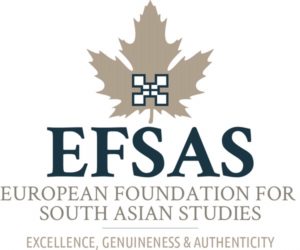
 EFSAS
EFSAS
Afghanistan has proven to be one of the most dangerous locations in the world, where it is estimated that more than 140 people get killed each day because of road bombs and suicide attacks.
A suicide bomb attack on a Shiite Cultural Centre in Kabul on Thursday the 28th of December 2017, killed at least 40 people while injuring more than 80 civilians, including women and children. The terrorist attack was claimed by so-called Islamic State (IS) and apart from the Shia Cultural Centre, the Afghan Voice News was also targeted.
So-called Islamic State has recently intensified its belligerency against Shia targets in Afghanistan as just three days after the attack in Kabul, the IS claimed responsibility for another terrorist strike on Sunday the 31st of December 2017, during a funeral in the eastern Afghan city of Jalalabad where the suicide attacker killed at least 15 people and wounded more than 13 persons.
The first time that the IS formally spread out of the Arab World was in January 2015, in Afghanistan, when it established the Khorasan (historic name for Afghanistan and its surrounding regions) branch. The IS, proclaiming itself as a worldwide Caliphate claims political, religious and military authority over all Muslims Nations and has excelled in comparison to other terrorist organizations by the widespread and effective use of advertisement through social media and other internet based platforms. The Khorasan branch mainly consists of former Tehreek-e-Taliban Pakistan (TTP) members whereby most of its fighters are comprised of both, Taliban defectors and foreign Jihadists. The Taliban and Al-Qaeda (AQ), both of which have had a strong foothold for years in Afghanistan have been averse of the involvement of IS in Afghanistan, and view its members as ‘foreigners’, which has resulted in growing animosity and a struggle for control.
General Joseph Votel of the US Central Command has recently stated that he favours a more aggressive approach toward these terrorist organizations, especially the Taliban. If the preparations in the winter are successful, than the Afghan Army would have less difficulties to fight the Taliban during better weather circumstances. “By the time they get to the next fight, they will be able to really present a significant offensive capability,” said the US commander.
It is a cruel irony that a day before the attack in Kabul on the Shiite Cultural Centre, China offered to extend the China Pakistan Economic Corridor (CPEC) to Afghanistan as the three sides pledged to step-up counter-terrorism cooperation and not to allow any country, group or individual to use their soils for terrorism. According to the Chinese Foreign Ministry spokesperson, a consensus had been reached on an eight-point plan to bring peace between Afghanistan and Pakistan, which included the formation of a security mechanism to enhance counter-terrorism cooperation to fight all forms of terrorist organizations and terrorists. The move by China is not surprising as it is facing an uprising of ethnic Muslim Uyghurs in Xinjiang, where the authorities have blamed the violence emanating from its restive province on radical Islamist ideology and residents’ ties to foreign terrorist networks. A possible liaison between groups operating in China’s Xinjiang province and the IS and TTP, operating in the congested milieu of more than a few dozen extremist organizations in Pakistan, could jeopardize the CPEC, but more importantly, inspire such terrorist groups to decide to target Beijing instead of looking at Western targets, which – physically and operationally – is much more strenuous.
With his first Tweet of 2018, the American President Donald Trump accused Pakistan of playing a double game in Afghanistan while using aid from Washington, saying that “The United States has foolishly given Pakistan more than 33 billion dollars in aid over the last 15 year, and they have given us nothing but lies & deceit thinking of our leaders as fool. They give safe havens to the terrorists we hunt in Afghanistan, with little help. No more”.
The Chinese proposal to act as a mediator between Pakistan and Afghanistan seems utopian and unrealistic as Afghanistan has consistently been in a clinch with Pakistan due the fact that the Taliban, Haqqani network and other terrorist organizations, aimed at pursuing Pakistan’s strategic objectives in Afghanistan, are alleged to be supported by the Pakistan’s Military establishment and have continuously been using Pakistan as a safe haven in order to plan and carry out attacks from Pakistani soil with the aim to destabilize the Government in Kabul. Such serious sensitivities, role of Pakistan’s powerful Intelligence Agency, Inter-Services intelligence (ISI) in the Afghan-Soviet War and its alleged support to the Afghan Taliban and the Haqqani network, and historical disagreements regarding the Durand Line have further exacerbated the complexities of the already complex and rather ‘uneasy’ relationship between Islamabad and Kabul, altogether suggesting that formulation of such action plans on paper will require a drastic, and rather unnatural change among Pakistan’s powerful Military establishment to ensure implementation and thereby make a difference on the ground.
Unless, Pakistan and in essence its powerful Military, does not adopt a resolute policy towards terrorism without distinguishing between ‘bad’ and ‘good’ terrorists, Chinese attempts to improve the security situation in Afghanistan, with the aim of stabilising the situation in its western parts and ensuring the safety of personnel and goods in the CPEC project, will not materialize.
Current geo-political developments in the region suggest that Afghanistan might again prove to be the battleground for another ‘Cold War’. This time, between China and the United States; With Pakistan, again, as a proxy of either Beijing or Washington, or paradoxically of both, and thereby continuing its infamous ‘double game’.
 لراوبر ویب پاڼه لراوبر يو افغان – تازه خبرونه
لراوبر ویب پاڼه لراوبر يو افغان – تازه خبرونه


